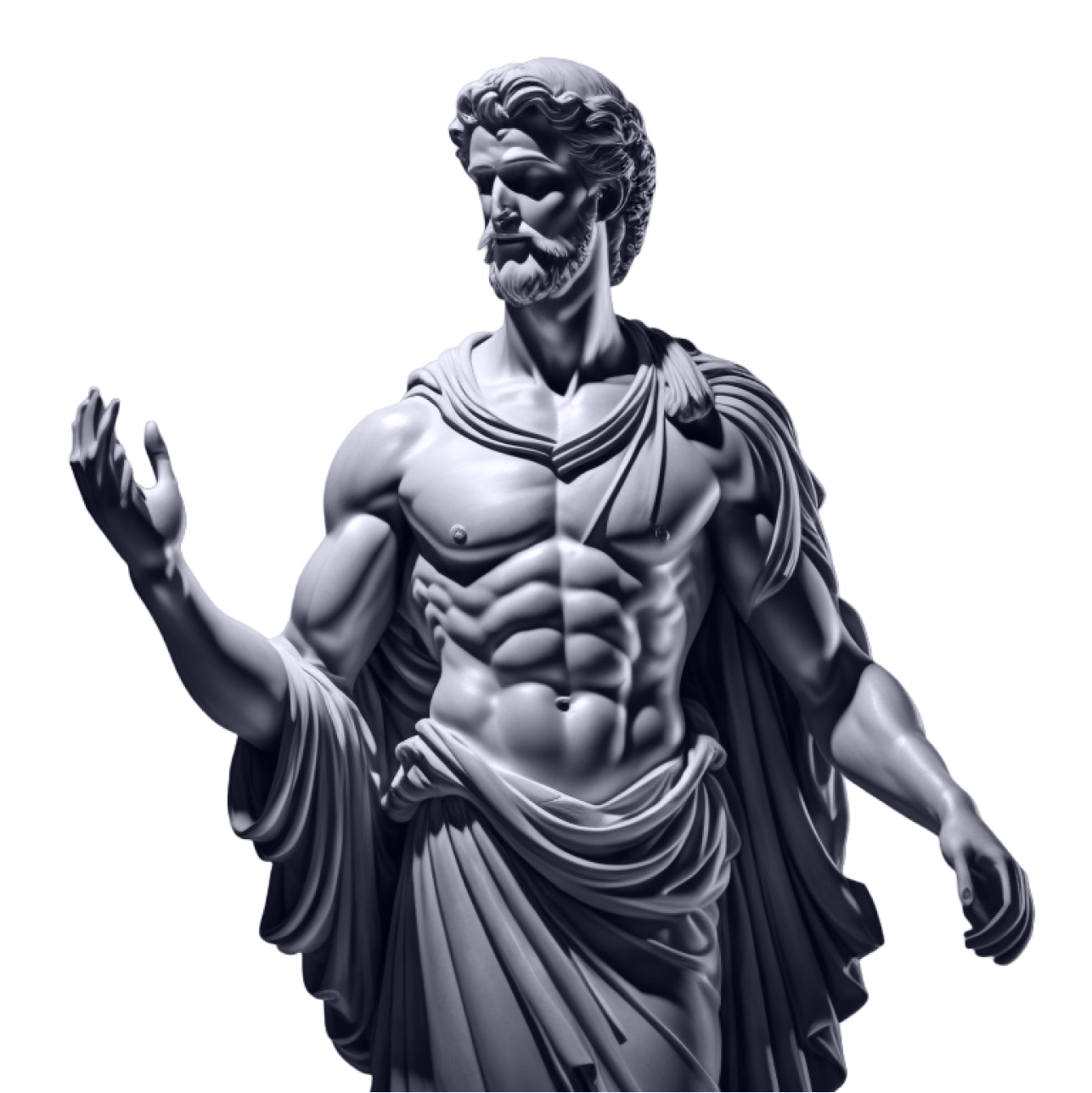HOW WE ARE WORKING?
In our work, we aim to help individuals unlock their potential through an integrative approach to self-discovery. We create conditions for profound self-exploration, assisting people in gaining a better understanding of themselves in all aspects of their personality. We provide knowledge about the modern world, its trends, challenges, innovations, and opportunities, so that everyone can consciously choose their path, considering external factors.
OUR APPROACH
6-8 weeks
Profile Exploration

Introductory meeting
1 day
Formulating a request and goals and tasks
1 day
Designing a personal
development strategies
development strategies
Supporting the implementation of personal development strategy
Created for up to a year
with periodic updates
with periodic updates




Consulting
On request
1 week
1
3
2
4
5
5
In our work, we aim to help individuals unlock their potential through an integrative approach to self-discovery. We create conditions for profound self-exploration, assisting people in gaining
a better understanding of themselves
in all aspects of their personality.
We provide knowledge about the modern world, its trends, challenges, innovations, and opportunities, so that everyone can consciously choose their path, considering external factors.
a better understanding of themselves
in all aspects of their personality.
We provide knowledge about the modern world, its trends, challenges, innovations, and opportunities, so that everyone can consciously choose their path, considering external factors.
Formulating
a request and goals
and tasks
a request and goals
and tasks

The central concepts in our approach include:
By creating a specific field of meaning and asking questions , we assist individuals in highlighting their strengths, interests, formulating hypotheses about themselves and the desired future image. Additionally, we empower them to independently discover possible paths to achieve their formulated goals and tasks.
Our Support Resources
who can consciously unleash and actualize their potential to navigate life and the repercussions of their choices. To attain this objective, we incorporate the methodologies of M. Archer, R. Vallacher, D. Wegner,
V. Petrovsky, D. Leontiev, aiming to foster a personality capable of making well-balanced decisions and adeptly steering their own life.
V. Petrovsky, D. Leontiev, aiming to foster a personality capable of making well-balanced decisions and adeptly steering their own life.
Our focus is on shaping a mature individual
We draw on the philosophies of M. Heidegger and D. Pico de Mirandola, "Theory U" by O. Scharmer,
as well as social theories of subjectivity by P. Cleaver, A. Bandura, and others, linked to the rapid growth
of organizational complexity in the global ecosystem. In such conditions, focusing solely on one's needs ceases to be useful for the survival of the world.
as well as social theories of subjectivity by P. Cleaver, A. Bandura, and others, linked to the rapid growth
of organizational complexity in the global ecosystem. In such conditions, focusing solely on one's needs ceases to be useful for the survival of the world.
The concept of the future time perspective, as a crucial motivational aspect of personal development, is convincingly supported by the works of J. Nuttin, F. Zimbardo, and W. Boyd, P. Fraisse, M. Seligman. It lies at the core of models by M. Heidegger, D. Dewey, and others. The significance of cultivating the skill of future thinking and utilizing future images is affirmed by UNESCO and OECD in the field of education.
The creative nature of humans is normatively expressed through caring for the world and its improvement
This concept complements and enriches the idea of mature subjectivity. Without addressing ultimate meanings, it is challenging to assert that an individual truly chooses and engages in what is valuable to them. The importance of this is confirmed by the works of V. Frankl, A. Asmolov, S. Rubinstein, as well as A. and D. Leontievs, and other researchers.
Relying on envisioned future scenarios and crafting a developmental strategy based on them
Drawing on personal ultimate meanings plays a key role in creating and implementing a personal development strategy
We take into account the inclination to actively participate in collective processes and the formation of values that surpass situational needs. Drawing on the works of authors such as D. Dewey, É. Wenger, K. Lewin, and A. Bandura in the realms of social constructivism, community of practice theory, social field theory,
and social motivation, we strive to shape desired models of social environments where individuals can best actualize their potential.
and social motivation, we strive to shape desired models of social environments where individuals can best actualize their potential.
Each of us, as part of a larger puzzle, expresses our uniqueness through what is important to us (values and directions). We assist in formulating a path for development based on how an individual envisions their future, and then we create an action plan to actualize it, taking into account educational opportunities and today's conditions.
The concept of the prosocial nature of humans plays a pivotal role in our approach
The chain of work represents the manifestation of personal identity
The result is a product of self-exploration
M. Archer
R. Vallacher
V. Petrovsky
M. Heidegger
A. Bandura
O. Scharmer
By creating a specific field of meaning and asking questions , we assist individuals in highlighting their strengths, interests, formulating hypotheses about themselves
and the desired future image. Additionally, we empower them to independently discover possible paths to achieve their formulated goals and tasks.
and the desired future image. Additionally, we empower them to independently discover possible paths to achieve their formulated goals and tasks.
who can consciously unleash and actualize their potential to navigate life and the repercussions of their choices. To attain this objective, we incorporate the methodologies of M. Archer, R. Vallacher, D. Wegner, V. Petrovsky, D. Leontiev, aiming to foster a personality capable
of making well-balanced decisions
and adeptly steering their own life.
of making well-balanced decisions
and adeptly steering their own life.
Our focus is on shaping a mature individual
We draw on the philosophies of
M. Heidegger and D. Pico de Mirandola, "Theory U" by O. Scharmer,
as well as social theories of subjectivity by P. Cleaver, A. Bandura, and others, linked to the rapid growth
of organizational complexity in the global ecosystem. In such conditions, focusing solely on one's needs ceases to be useful for the survival of the world.
M. Heidegger and D. Pico de Mirandola, "Theory U" by O. Scharmer,
as well as social theories of subjectivity by P. Cleaver, A. Bandura, and others, linked to the rapid growth
of organizational complexity in the global ecosystem. In such conditions, focusing solely on one's needs ceases to be useful for the survival of the world.
The concept of the future time perspective, as a crucial motivational aspect of personal development,
is convincingly supported by the works
of J. Nuttin, F. Zimbardo, and W. Boyd,
P. Fraisse, M. Seligman. It lies at the core of models by M. Heidegger, D. Dewey, and others. The significance
of cultivating the skill of future thinking and utilizing future images is affirmed
by UNESCO and OECD in the field
of education.
is convincingly supported by the works
of J. Nuttin, F. Zimbardo, and W. Boyd,
P. Fraisse, M. Seligman. It lies at the core of models by M. Heidegger, D. Dewey, and others. The significance
of cultivating the skill of future thinking and utilizing future images is affirmed
by UNESCO and OECD in the field
of education.
The creative nature of humans
is normatively expressed through caring for the world and its improvement
is normatively expressed through caring for the world and its improvement
This concept complements and enriches the idea of mature subjectivity. Without addressing ultimate meanings,
it is challenging to assert that an individual truly chooses and engages in what is valuable to them. The importance of this is confirmed by the works of
V. Frankl, A. Asmolov, S. Rubinstein,
as well as A. and D. Leontievs, and other researchers.
it is challenging to assert that an individual truly chooses and engages in what is valuable to them. The importance of this is confirmed by the works of
V. Frankl, A. Asmolov, S. Rubinstein,
as well as A. and D. Leontievs, and other researchers.
Relying on envisioned future scenarios and crafting a developmental strategy based on them
Drawing on personal ultimate meanings plays a key role in creating
and implementing a personal development strategy
and implementing a personal development strategy
We take into account the inclination
to actively participate in collective processes and the formation of values that surpass situational needs. Drawing on the works of authors such
as D. Dewey, É. Wenger, K. Lewin,
and A. Bandura in the realms of social constructivism, community of practice theory, social field theory, and social motivation, we strive to shape desired models of social environments where individuals can best actualize their potential.
to actively participate in collective processes and the formation of values that surpass situational needs. Drawing on the works of authors such
as D. Dewey, É. Wenger, K. Lewin,
and A. Bandura in the realms of social constructivism, community of practice theory, social field theory, and social motivation, we strive to shape desired models of social environments where individuals can best actualize their potential.
Each of us, as part of a larger puzzle, expresses our uniqueness through what is important to us (values
and directions). We assist in formulating
a path for development based on how an individual envisions their future,
and then we create an action plan
to actualize it, taking into account educational opportunities and today's conditions.
and directions). We assist in formulating
a path for development based on how an individual envisions their future,
and then we create an action plan
to actualize it, taking into account educational opportunities and today's conditions.
The concept of the prosocial nature of humans plays a pivotal role in our approach
The chain of work represents the manifestation of personal identity
The result is a product of self-exploration
D. Leontyev
D. Dewey
S. Rubinstein
A. Asmolov
V. Frankl
In addition to the aforementioned concepts employed within the framework of in-depth interviews, both individual and group sessions, we also utilize methodologies adapted for various age groups:
Multiple Intelligences Theory by Howard Gardner:
01
Mind Formats Theory by Alexander Lyamin:
02
Suggests that intelligence is not limited to solving mathematical problems or expressing oneself verbally. Gardner identified eight different types of intelligence, such as logical-mathematical, linguistic, musical, spatial, and others. This methodology opens new approaches to education, considering the diversity of students' abilities and helping to develop multiple intelligences simultaneously.
Hans Eysenck's Temperament Test:
03
Approaches the study and understanding of individual thinking formats. The methodology helps understand how each person prefers to organize information, make decisions, and solve problems. Understanding thinking styles can be beneficial in education, business, and personal life for more effective interaction and communication.
Measures two primary aspects of personality: extraversion (inclination toward communication and activity) and neuroticism (emotional stability). It helps understand how inclined a person is to socializing and how they cope with emotional stress.
Myers-Briggs Type Indicator (MBTI) Personality Typing:
04
Identifies four main dimensions: extraversion or introversion, intuition or sensing, thinking or feeling, and judging or perceiving. By combining these preferences, the test determines 16 possible personality types, aiding individuals in better understanding their preferences in communication, decision-making, and life organization.
Motivational Incentives:
05
A tool that helps identify what motivates and drives action. The test helps understand which factors inspire and contribute to effectiveness.
Emotional Intelligence (EQ) Assessment:
06
Measures a person's ability to understand, manage, and express emotions. Typically includes questions and scenarios aimed
at assessing skills in interpersonal relationships, self-motivation, and emotional self-regulation. Test results help better understand emotional reactions and develop emotional intelligence skills.
at assessing skills in interpersonal relationships, self-motivation, and emotional self-regulation. Test results help better understand emotional reactions and develop emotional intelligence skills.
Memory Diagnostics:
07
Assessment and training of cognitive abilities through games and exercises. Allows identifying strengths and weaknesses to create personalized recommendations for improving cognitive skills.
Game Formats Identifying Values, Memory, and Decision-Making Strategy:
08
Designed for interactive and deeper understanding of these aspects. They may include various scenarios and tasks that reveal what is important to a person, how they process information, and how they make decisions in different situations. Such games are often used in education and business for skill development and better self and others understanding.
Various other methodologies tailored to specific requests and situations.



Identifying diverse intellectual abilities and talents helps form
a more comprehensive understanding of potential and develop a quality strategy for personal development.
a more comprehensive understanding of potential and develop a quality strategy for personal development.
We explain methodologies and discuss results to help individuals better understand themselves
We strive to create conditions for nurturing confident, self-aware, and goal-oriented individuals who can make informed decisions and successfully unleash their potential.
In addition to the aforementioned concepts employed within the framework of in-depth interviews, both individual and group sessions, we also utilize methodologies adapted for various age groups:
Multiple Intelligences Theory by Howard Gardner:
01
Mind Formats Theory by Alexander Lyamin:
02
Suggests that intelligence is not limited to solving mathematical problems or expressing oneself verbally. Gardner identified eight different types of intelligence, such as logical-mathematical, linguistic, musical, spatial, and others. This methodology opens new approaches to education, considering the diversity of students' abilities and helping to develop multiple intelligences simultaneously.
Hans Eysenck's Temperament Test:
03
Approaches the study and understanding of individual thinking formats. The methodology helps understand how each person prefers to organize information, make decisions, and solve problems. Understanding thinking styles can be beneficial in education, business, and personal life for more effective interaction and communication.
Measures two primary aspects of personality: extraversion (inclination toward communication and activity)
and neuroticism (emotional stability).
It helps understand how inclined
a person is to socializing and how they cope with emotional stress.
and neuroticism (emotional stability).
It helps understand how inclined
a person is to socializing and how they cope with emotional stress.
Myers-Briggs Type Indicator (MBTI) Personality Typing:
04
Identifies four main dimensions: extraversion or introversion, intuition or sensing, thinking or feeling, and judging or perceiving. By combining these preferences, the test determines
16 possible personality types, aiding individuals in better understanding their preferences in communication, decision-making, and life organization.
16 possible personality types, aiding individuals in better understanding their preferences in communication, decision-making, and life organization.
Motivational Incentives:
05
A tool that helps identify what motivates and drives action. The test helps understand which factors inspire
and contribute to effectiveness.
and contribute to effectiveness.
Emotional Intelligence (EQ) Assessment:
06
Measures a person's ability to understand, manage, and express emotions. Typically includes questions and scenarios aimed at assessing skills in interpersonal relationships, self-motivation, and emotional self-regulation. Test results help better understand emotional reactions and develop emotional intelligence skills.
Memory Diagnostics:
07
Assessment and training of cognitive abilities through games and exercises. Allows identifying strengths and weaknesses to create personalized recommendations for improving cognitive skills.
Game Formats Identifying Values, Memory, and Decision-Making Strategy:
08
Designed for interactive and deeper understanding of these aspects. They may include various scenarios and tasks that reveal what is important to a person, how they process information, and how they make decisions in different situations. Such games are often used in education and business for skill development and better self and others understanding.
Various other methodologies tailored to specific requests and situations.
Questions:
What position do I want to occupy in the desired future?
What qualities and skills do I need for that?
What are my learning preferences?
What are my inclinations?
What are my interests?
What are my guiding principles (values, social)?
How do I plan to progress (actualize the desired)?
How will I observe that the envisioned is happening?
What qualities and skills do I need for that?
What are my learning preferences?
What are my inclinations?
What are my interests?
What are my guiding principles (values, social)?
How do I plan to progress (actualize the desired)?
How will I observe that the envisioned is happening?

get a free consultation
What worries you?
Briefly describe your question and we will contact you shortly
we are ready to help you!
Отправляя заявку, Вы соглашаетесь с правилами обработки персональных данных
Privacy Policy

ABOUT US
Athena Welfare © 2024













